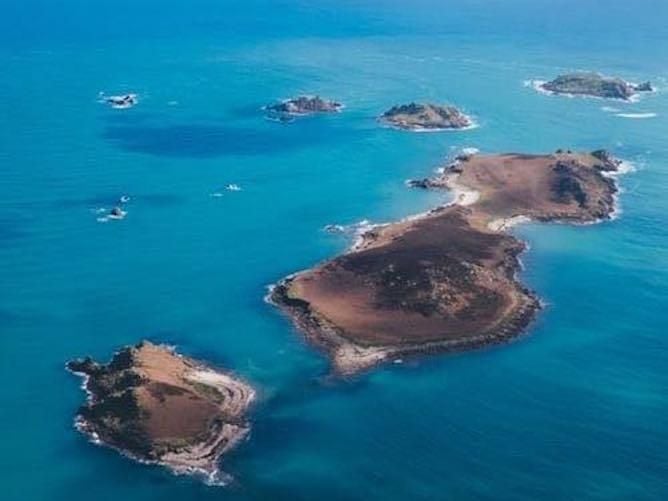What is an Offshore Jurisdiction?
- tax reduction incentives
- asset protection
- banking privacy
- offshore accounts and
- internationalising of business structure
Explore Different Offshore Jurisdictions Around the World

- Asia-Pacific
Offshore Country Definition
An offshore country referred to as an Offshore Financial Centres (OFC) can be defined as 'as a country or jurisdiction that provides financial services to nonresidents on a scale that is incommensurate with the size and the financing of its domestic economy.'
The reality is not so straightforward. As many 'onshore' financial centres (UK, Cyprus, Malta) offer similar non-residential corporate tax benefits and flexible company formation structures that are typically associated with a traditional 'offshore' tax centres (Nevis, Panama, Seychelles).
Consequently, an offshore country has nothing to do with the location but is more to do with the corporate and tax laws that govern non-resident companies. Some nations make it easy to manage corporations formed in their jurisdiction (Dominica), or offer attractive investment and financial services (Cayman Islands) and while still others become known for their strong asset protection and privacy laws (Nevis).
There is not one standard set of laws that apply to all offshore countries. Some countries such as the UK and US, for example, can offer 0% corporate taxation on non-resident companies while still have a typical high-tax and high-regulatory environment for domestic companies.
Why Incorporate In An Offshore Country?
Why Incorporate In An Offshore Country?

- Tax Reduction -Forming an offshore entity overseas can greatly reduce your tax bill especially if you have a business that has foreign-sourced income. Depending on where you live, (if your country of residence has no CFC laws, then you can virtually eliminate your tax burden). If you do live in a country with CFC laws, like the US or UK, then its likely that a tax reduction is possible, as for complete tax elimination, changing residency is required.
- Diversification - Diversifying one's assets through multiple holding companies and offshore bank accounts spreads one's risk and enables greater security in case of bank failure, seizure, or forfeiture (which was what happened during the 2008 crises in Hungary, Argentina and Greece.)

- Internationalizing - Globalizing your company opens you open to a range of other possibilities, including access to regional investments, tax reductions, trade,
- Access to overseas institutions - Having access to overseas banks and financial institutions ensures you are not dependent upon one bank or institution. Holding multiple currencies and different types of assets across accounts helps mitigate your risk.

- Separate legal system - Establishing yourself in an offshore jurisdiction gives a second separate set of corporate legal laws that reduce your dependence and the authority of the country and the institutions where you reside.
- Multiple Flag Theory - Plant multiple flags, ie, having your life divided in different countries, residency in one country, a company in another, and banking in a third diversifies your life, increases protection from confiscation and seizure. By becoming a citizen of a second country, or having a second tax residence, by creating an offshore company, or overseas account you free from the authority of a single country.
These Are Not Just Some Small Caribbean Islands
An offshore jurisdiction can no longer be defined merely as a group of renegade islands in the Caribbean. Contrary to popular belief, there are certain states in the USA where it is easier to get an anonymous shell company than in other well-known tax havens such as the Cayman Islands and the Bahamas.
And since even the USA rejected the signing of the CRS (Common Reporting Standard) it has one of the most secret offshore financial industries in the world; taking the #3 spot just behind Switzerland and Hong Kong.
There are many modern jurisdictions that can be seen as offshore financial centers, though might commonly be perceived as a modern financial hub. For instance, places like Scotland, Netherlands, and Ireland are recognized as being a tax haven for many multinational corporations.
Each country offers a low-tax company formation structure for non-resident individuals and companies that offer tax exemptions on all foreign-sourced income. Offshore corporate structures can be found not only in traditional tax havens but also in traditional high-tax countries. Benefits such as:
- low or no tax
- minimal reporting standards
- use of nominee directors
All of which bear the hallmark of an offshore financial centre can be found in places like Ireland, Cyprus, Malta, and the United Kingdom.
There really is no easy way to differentiate one type of Offshore Financial Centre from another, whether it is a traditional tax haven or modern corporate financial centre as many share the same favorable laws supporting finance, banking, capital and the possibility of non-resident companies benefiting from keeping income offshore.
What Type Of Individuals Use These Jurisdictions?
Offshore jurisdictions are not just for wealthy businessmen or multinational corporations but for anyone looking for an alternative.
- Investors looking for better investment opportunities
- Persons who would like to diversify their assets
- Entrepreneurs looking to globalize their business through multi-jurisdictional management
- Companies looking to form a subsidiary in an overseas country
- Online businesses that have no physical presence
- Corporations looking to take advantage of regional trade advantages
- Startups who want to maximize profits and minimize tax burden
- Service-based companies wanting to offshore their business structure
- Families looking for trust formation, estate planning and wealth management
- Anyone who has an international lifestyle, 'digital nomad' or dual citizen and are looking to minimize their tax footprint


As a self-serving entity, individuals and companies naturally seek out the most advantageous environment to incorporate. Thanks to the explosion of information and an increasingly liberalized global economy, it's possible for nearly anyone to form an overseas company entirely online and is much cheaper than it ever was before.
If we need a hint, then look at any of them massive multi-national companies.
- Apple incorporated its European headquarters in Ireland
- Facebook has a company in Delaware (Yes the US is a corporate tax have too!) and
- Google has a subsidiary in Bermuda and the Netherlands.
Corporations have been pursuing offshore strategies for decades. One of the most successful offshore tax havens in the world is the US state of Delaware.
Back in the first few decades of the 1900s, Delaware passed laws making it easier to form and manage a corporation. It worked. Nearly a century later and half of the world's largest companies are incorporated there.
Other countries that have pursued similar strategies as Delaware, with their own tax-friendly laws are places like Panama, British Virgin Islands and Nevis all which consistently rank as some of the most popular offshore jurisdictions due to the low taxation, minimal requirements, and banking secrecy.
There is no single right solution for everyone. What is right for Google may not be right for you. When choosing an offshore jurisdiction, there are several important factors that should be considered that can help determine what offshore jurisdiction is right for you.
10 Factors to Look for In Your Search
Selecting the right offshore country is an important part of establishing an internationalized structure - as every jurisdiction is different, and every situation unique. The jurisdiction you choose should have at the very minimum, the following 10 characteristics:
1. Low Tax Jurisdiction - With little or no taxation including capital gains tax, income tax, inheritance tax, gift tax, etc...
2. Favorable Incorporation Laws - Corporate laws should allow for one Director from any country, have efficient incorporation processes, and protect the rights of the entity
3. Stable Currency - The country should have a currency that is not volatile, allows for the use of several different currencies with no capital controls


4. Privacy Laws - There should be privacy laws that protect you from public and governmental scrutiny keeping safe your personal information and accounts and shield you from foreign arbitrage
5. Stable Government - Your offshore jurisdiction must be politically and economically stable to ensure continuity and environmental security
6. Growing Economy - The economy should be open to global markets allowing financial transactions and the free movement of both physical and non-physical goods
7. Secure Banking System - Banks should be liquid with adequate capital reserves and little debt and ideally backed by a government that has sound economic policy
8. Favourable Communications System - Communications systems should allow for stable and secure source of communications across all channels
9. Reputation - The reputation of the country should be in good standing, is not blacklisted by the OECD, and has as a secure and stable offshore jurisdiction
10. Time Zone Compatibility & Close Location - the time zone should be such that you can contact your offshore provider or financial institution during business hours

Types of Corporate Structures
What is really required to ensure you are covered on all fronts is a multi-jurisdictional business strategy. As today many jurisdictions have been forced to change their offshore financial legislation largely because of the Common Reporting Standard (CRS) or the American version FATCA which together with the CRS have made global tax laws more difficult to untangle.
The best guarantee is to use multiple offshore structures in multiple jurisdictions.This will depend upon the country where the company is formed and the citizenship status of the client as each country hs unique information-sharing agreements. See a qualified advisor to ensure you are finding the best offshore solution for your situation.
With more and more global regulations and money-laundering initiatives being formed, such as the Financial Action Task Force FATF together with much more restrictive KYC requirements, many offshore jurisdictions have been forced to change their offshore corporate laws to ensure compliance, else risk being 'blacklisted'.
Banking and Offshore privacy is still a major concern in the offshore industry, and is something most would like to keep. As a result, there have been found other ways of re-structuring offshore entities to face the changes in the financial reporting and global regulatory environment.
Company Formation in Multiple-Jurisdictions
Using Several Countries as an Efficient Corporate Structure
One way to ensure asset protection is through the formation and administration of offshore entities set up in multiple tax haven countries, which include, IBCs, foundations, trusts, bank accounts, and other vehicles.
The strongest offshore structure is one that takes advantage of a multi-jurisdictional approach, or an International Fiduciary Structure which combines some professional management services, designed specifically to meet the changing circumstances of global business and banking needs while offering the best security and asset protection available.
Creating an offshore structure, combining two different company formation products in two-separate jurisdictions gives a multi-jurisdictional advantage.
For example, a company can be formed and held in Panama with the use of nominee services and becomes the company director of a Nevis LLC (where the assets are held) using corporate directors and shareholders.
This enables the individual starting the multi-tiered structure to remain discreet and well-insulated as there are two different and separate sets of corporate laws that protect each offshore entity.
Consequently, any court order, suit or claim must navigate two separate legal systems, many of which do not recognize foreign court-ordered civil suits, or if they do, they have lengthy and very costly legal processes which almost guarantee the asset's invulnerability.
Without a clear indication of criminal activity, there would be virtually no way to break the iron-clad asset protection structure.
Because privacy laws are constantly shifting in this day and age, it is frequently wise to speak with an advisor about selecting an offshore financial center in regard to your current tax situation to see what options are there for you to maximize your offshore benefits.
We have agents in almost every other major offshore jurisdiction, so if you have special jurisdictional requirements or preferences outside of these that are listed on this site, please contact us and we will give you the pros and cons of your choice(s).
Our Favorite Offshore Jurisdictions For Incorporating
While there is no single best place to form an offshore company, due to the uniqueness of each individual's situation, there are variations that give each offshore centre distinctions, which we will explore later.
Our top 5 Jurisdictions we highly recommend are:
Great For Offshore Companies - Panama
Known For Secrecy Legislation - Nevis
Top Notch Country For Asset Protection - Cook Islands
The 'Onshore' Jurisdiction - United Kingdom
Oldest European Corporate Law - Scotland

1. Panama
Panama takes the first spot as the world's best offshore jurisdiction. It has a formidable reputation as an offshore financial centre, is welcoming to foreigners, offers easy second-passport opportunities, permanent residency and citizen possibilities under the friendly nations visa program is just 5,000 USD.
Despite all the negative publicity it has received the last few years, due to the Panama Papers leaks, the industry is thriving. It is possible to open an offshore bank or corporate account provided there is a Panamanian Company and all KYC and due diligence checks are cleared. In the last years they have been more thorough in their investigations, but we find that if all document requirements are met, there aren't any problems.
The country has been offering offshore company packages for decades, and so there are strict banking secrecy laws and a supportive government behind the industry.
Panama is still one of the world's best offshore jurisdictions due to its strategic location, the fact that is competitively priced, and has fast incorporation times, flexible corporate structure and no taxation on all foreign-sourced income.

2. Nevis
Nevis has one of the world's strong asset protection clauses that has remained intact these last years, despite the growing trend toward transparency.
Nevis along with the Cook Islands have the world's toughest laws protecting assets. Nevis Trusts and LLCs are supported by robust legislation such as the Nevis Business Corporation Ordinance and the limited Liability Ordinance (1984, 1995, 2015). It has continued to maintain its laws, and has updated its offshore financial sector making it even more resilient over time.
There are no requirements for annual returns nor are the company registry's made available to the public. The application process is not as onerous as many other jurisdictions and can be done in a matter of days.
Corporate formation legislation also allows bearer shares and the use of nominee directors and shareholders and single-member ownership
There are significant barriers in pursuance of a legal suit. It requires a 100,000 USD bond to be placed for the suit to move forward and has can only be pursued within a 2-year statute of limitations.
Nevis has a very strong LLC structure that has limited liability for all owners, has a statute of limitations for fraudulent transfer of 2 years, and is an alternative to a Trust.

3. Cook Islands
The Cook Islands has one of the strongest asset protection legislation in the world that make it virtually impossible for creditors to break into an offshore entity. The corporate laws have many barriers that prevent claims from attaching themselves against the entity. Low statutes of limitations, high bond fees, claims must be done in person, and local Cook courts not recognizing foreign court orders all help to protect and safeguard the assets from fraudulent claims.
The Cook Islands is renowned for its strong legal codes that ensure privacy and asset protection for clients establishing an offshore entity. The Cook Islands is mostly renowned for its LLC and Foreign Trust both acts as strong security measures against frivolous lawsuits.
There are significant hindrances that prevent cases to be pursued against the offshore entity, such as the need to deal with a foreign court system, the requirement of a high standard of proof, high fraudulent conveyance requirements, and minimum statutes of limitations.

4. United Kingdom
The United Kingdom might take many by surprise, though it offers many of the offshore benefits found in many other tax havens such as tax savings and corporate flexibility, yet in a modern financial 'onshore' environment.
If using an LLP, the structure allows for a pass-through style structure keeping individuals free from all taxation requirements from all foreign earned income.
While one does not have the same privacy as Panama or Nevis, as public registry are open to the public, what you do get in exchange is: strong international reputation, access to numerous trade agreements, access to European markets, a host of Double Taxation Treaties (DTT), as well as a world-class financial jurisdiction in which to conduct your offshore business.

5. Scotland
Scotland is a tax haven that has many benefits such as 0% taxation of company profits as well as being a part of the UK and the reputation that comes with it.
Scotland has a popular Limited Partnership (LP) entity which is similar to the English LLP and benefits from many tax advantages similar to its cousin. The Scottish Limited Company provisions are enshrined in some of the oldest company formation legislation, the Partnership Act going back all the way to 1890.
The financial service sector is well-formed with companies and individuals taking advantage of European financial and economic markets together. Individuals and companies still manage to benefit from the tax advantages all the while in a well developed financial market.













